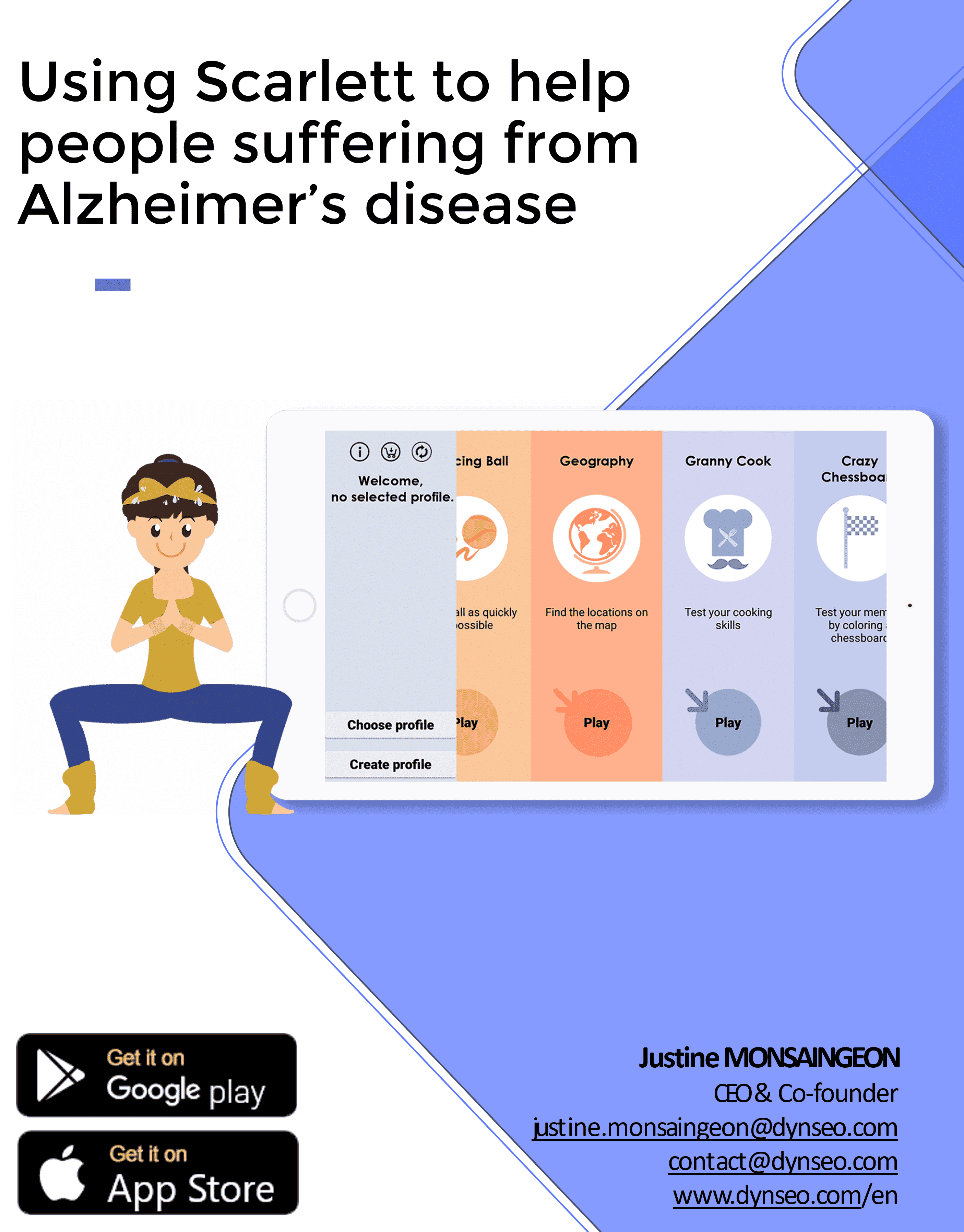To mark World Alzheimer’s Day, we’d like to take a look back at the current state of knowledge about Alzheimer’s disease around the world. We’ll delve into the figures, facts and poignant stories that bear witness to the reality of Alzheimer’s around the world. We will also explore the joint efforts of research, awareness and support for patients and families, as it is essential to break the silence and build a future where Alzheimer’s disease is no longer synonymous with despair, but rather with hope and compassion.
Alzheimer’s, a devastating disease spreading silently around the world, affects millions of people, shattering lives and posing monumental challenges to individuals, families and entire societies. This neurodegenerative disease, characterized by progressive loss of memory, cognition and independence, is one of the most pressing public health epidemics of our time. The figures are alarming, with increasing prevalence as the world’s population ages. However, beyond the raw statistics, Alzheimer’s is above all a human disease, affecting each patient and each loved one in a unique and heartbreaking way. That’s why it’s imperative to understand the scale of this global health problem, to explore the alarming data that reveal the extent of its impact and, above all, to examine the global initiatives in place to tackle it.
Worldwide Alzheimer’s statistics
Alzheimer’s is a silent pandemic affecting millions of lives worldwide. Understanding the scale of this epidemic is essential to guide prevention, research and management efforts. In this section, we dive into global Alzheimer’s statistics, highlighting current and projected figures, as well as the demographic groups most affected.
According to data from the World Health Organization, there are currently 55 million people worldwide suffering from dementia, of whom Alzheimer’s disease accounts for between 60 and 70% of cases. Dementia ranks as the seventh leading cause of death worldwide, underlining its significant impact on global health. The impact of Alzheimer’s disease is not limited to France: worldwide, there are an estimated 46 million cases of neuro-evolutionary disease, with almost 4.6 million new cases every year. According to projections, this figure is set to double every 20 years, reaching over 80 million cases by 2040.
Worldwide prevalence of Alzheimer’s
Current figures show that over 50 million people worldwide suffer from Alzheimer’s disease, and this figure is rising all the time. Forecasts indicate that by 2050, this number could rise to almost 152 million, mainly due to the aging of the world’s population. This alarming growth places Alzheimer’s among the top public health priorities, requiring immediate action to tackle this growing epidemic.

The alarming figures for the prevalence of Alzheimer’s worldwide underline the urgent need to invest in research and raise public awareness of this devastating disease. Each person affected by Alzheimer’s has a unique story, and it’s our duty to offer them appropriate support.
Economic impact of Alzheimer’s
In addition to the emotional and personal impact, Alzheimer’s has a significant economic burden. The medical and social costs associated with the disease are astronomical. Worldwide spending on Alzheimer’s care currently exceeds $1,000 billion a year. This financial burden puts considerable pressure on national healthcare systems and global economies, highlighting the importance of finding sustainable solutions.
Alzheimer’s not only changed my father’s life, it also had a huge financial impact on our family. The costs of medical care and support services are overwhelming. Social policies are essential to help families like ours.
Groups most affected
Alzheimer’s disease does not affect all population groups equally. The statistics reveal significant disparities. The elderly are naturally at greater risk, but specific risk factors such as family history, diabetes and hypertension also increase vulnerability. Women are also more likely to be affected than men.
Alzheimer’s is a complex disease with multiple determinants. Understanding the groups most affected helps us target prevention and research, in the hope of one day reversing this alarming trend.
As we explore these global Alzheimer’s statistics, we realize the scale of the challenge we face. The next section will look at global initiatives to combat this devastating disease and offer hope to those affected.
Global initiatives to combat Alzheimer’s
Alzheimer’s is a devastating disease that transcends national borders. In the face of this global epidemic, considerable international efforts are being made to understand, prevent and manage the disease. In this section, we explore the main global initiatives aimed at combating Alzheimer’s and making a positive difference to the lives of those affected.
International Alzheimer’s research
Major Alzheimer research organizations and projects
Research is at the heart of the fight against Alzheimer’s. Organizations around the world have embarked on large-scale research initiatives to understand the underlying mechanisms of the disease. Institutions such as the National Institute on Aging in the USA, the Karolinska Institute in Sweden and the Institut Pasteur in France devote considerable resources to Alzheimer’s research. International collaborations are also increasingly common, enabling us to draw on the skills and resources of different countries.
Alzheimer’s research is a global undertaking, requiring cooperation without borders. Together, we are making significant progress in understanding this complex disease.
Many pharmaceutical companies and research organizations are carrying out intensive research into Alzheimer’s disease, in the hope of developing new, more effective treatments. Here are a few noteworthy laboratories and research approaches:
- Biogen: This company has developed aducanumab, a monoclonal antibody that targets amyloid plaques in the brains of Alzheimer’s patients. The FDA’s approval of aducanumab in 2021 has generated considerable interest and paved the way for new research.
- Eli Lilly: Eli Lilly is working on donanemab, another monoclonal antibody targeting amyloid. Clinical trials are currently underway to evaluate its efficacy.
- Roche and AC Immune: These companies are collaborating on the development of several drug candidates targeting amyloid, including crenezumab. They are currently in advanced clinical trials.
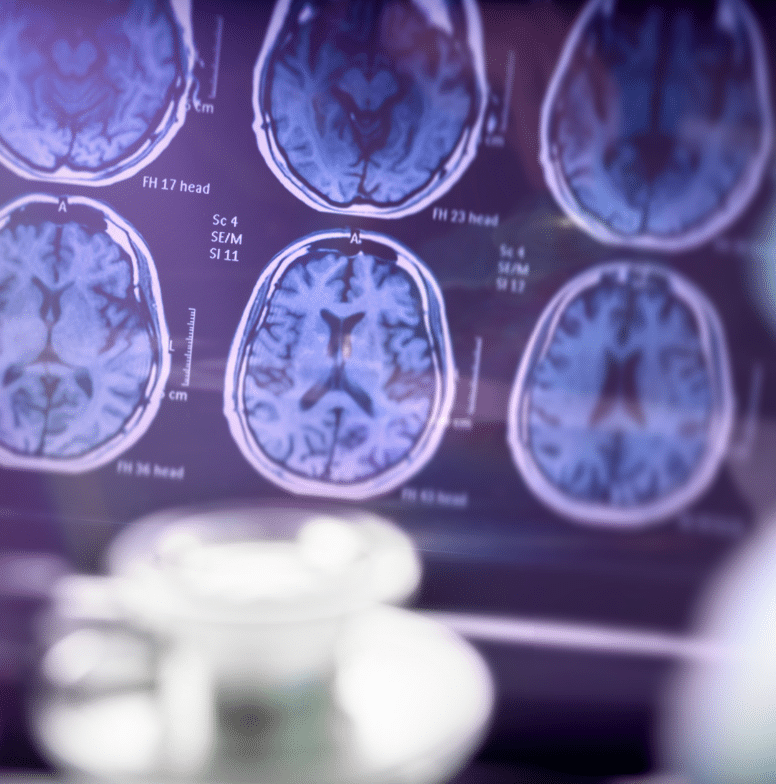
- Genetic research: Research into the genetic factors contributing to Alzheimer’s disease is ongoing. Laboratories around the world are studying the genetic mutations that increase the risk of developing the disease, which could pave the way for targeted therapies.
- Multifactorial approaches: Some laboratories are exploring treatments combining different strategies, such as regulation of beta-amyloid and tau proteins, as well as anti-inflammatory interventions, in the hope of better treating the disease.
It’s important to note that Alzheimer’s research is complex, and the development of new drugs can take many years. However, the ongoing commitment of the scientific and pharmaceutical community offers hope for future advances in the understanding and treatment of this devastating disease.
Recent discoveries and advances in the field
Advances in Alzheimer’s research are constant. Scientists are exploring new avenues to better understand the causes of the disease and develop more effective treatments. Recent discoveries, such as the identification of early biomarkers and the development of promising gene therapies, offer tangible hope for the future. Here are some other concrete examples:
- Early detection :
-
- Advances in neuroimaging, such as positron emission tomography (PET) and magnetic resonance imaging (MRI), enable early detection of Alzheimer’s disease-related brain changes, even before the onset of symptoms.
- Biomarkers such as beta-amyloid and tau protein levels in cerebrospinal fluid or blood are increasingly used to identify individuals at risk.
- Genetic research :
-
-
-
- The discovery of genes associated with an increased risk of developing Alzheimer’s disease, such as APOE4, has led to a better understanding of genetic risk factors.
- Research into rare genetic variants, such as mutations in the TREM2 gene, is opening up new avenues for understanding disease pathogenesis and developing potential treatments.
- Multifactorial approaches :
-
-
-
- Scientists are exploring treatments combining different approaches, including reducing amyloid plaques, modulating tau protein, and regulating brain inflammation.
- Existing drugs for other conditions, such as anti-inflammatory drugs or type 2 diabetes medications, are being investigated for their potential in the treatment of Alzheimer’s disease.
-
-
-
- Non-drug interventions :
-
- Non-pharmacological therapies, such as cognitive stimulation, nutrition management and exercise promotion, are becoming increasingly important in managing patients’ symptoms and quality of life.
- Integrating artificial intelligence (AI):
- AI is used to analyze large amounts of data, such as genetic data, brain images, and medical records, to detect patterns and identify potential therapeutic targets.
Awareness-raising and education
Worldwide Alzheimer’s awareness campaigns
Raising public awareness is a key element in the fight against Alzheimer’s. Global campaigns such as World Alzheimer’s Day, held each year on September 21, aim to inform the world about the challenges faced by people with the disease and their families. These campaigns highlight the importance of Alzheimer’s research, prevention and care.
-
-
Raising awareness of Alzheimer’s is essential to breaking down the stigma surrounding the disease. The more openly we talk about it, the more resources we can mobilize for research and support.
Here are a few examples of awareness-raising campaigns around the world:
United States:
- “The Longest Day: Organized by the Alzheimer’s Association, this campaign takes place every year in June, on the longest day of the year. Participants organize events and raise funds to support Alzheimer’s research. They are encouraged to choose a meaningful activity that represents the constant struggle of people with the disease.
- “Walk to End Alzheimer’s”: Organized by the Alzheimer’s Association, this annual walk takes place in many American cities. Its aim is to raise funds for research and raise public awareness of Alzheimer’s disease. Participants walk in honor of people suffering from the disease.
- “Alzheimer’s Poetry Project: This campaign aims to raise awareness of the role of art and poetry in the lives of people with Alzheimer’s disease. She organizes poetry workshops in long-term care facilities to encourage patients’ artistic expression.

In Quebec :
- “Walk for Alzheimer’s”: Organized by the Alzheimer Society of Quebec, this annual walk takes place in several regions of the province. Its aim is to raise funds to support people with Alzheimer’s disease and their families, and to raise public awareness of the reality of the disease.
- “Moi, je me souviens”: This awareness-raising campaign highlights the stories and testimonials of people with Alzheimer’s disease and their loved ones. It aims to break down stereotypes and encourage empathy towards those living with the disease.
- “La Nuit Blanche pour Alzheimer”: This initiative encourages Quebecers to organize events or activities over an entire night to raise funds and awareness of Alzheimer’s disease. Participants are invited to wear white to show their support.

United Kingdom:
- “Dementia Friends: A campaign launched by the Alzheimer’s Society, it aims to raise public awareness of the challenges facing people with dementia. Participants are encouraged to take part in training to better understand dementia and learn how to support people with the disease.
- “Memory Walk: Organized by the Alzheimer’s Society, this annual walk raises funds for dementia research and support services. It takes place across the country, allowing participants to walk in honor of loved ones affected by the disease.
In France :
- “La Semaine Bleue”: This initiative takes place every year in October and aims to raise awareness of the situation of family carers of people with Alzheimer’s disease. Events are organized to offer support and information to caregivers.
Australia:
- “Dementia Australia”: This organization runs various awareness campaigns, including “Dementia Awareness Month” in September. She also organizes walks to raise funds and awareness of the disease.
India:
- “Alzheimer’s and Related Disorders Society of India (ARDSI): ARDSI runs various awareness campaigns in India to educate the population about dementia. They also organize training programs for healthcare professionals and caregivers.
These examples illustrate how awareness of Alzheimer’s disease is a global concern, and many countries are developing initiatives to inform the public, provide support for sufferers and their families, and raise funds for research. Each campaign aims to break down stigma and improve the quality of life of those affected by the disease.
The importance of public education in reducing stigma
Public education plays a crucial role in reducing the stigma associated with Alzheimer’s disease. Educational programs aim to inform people about the nature of the disease, its symptoms and its impact. A better understanding of Alzheimer’s contributes to greater empathy towards people with the disease and the creation of more inclusive societies.
Support for patients and caregivers
Programs and resources for people with Alzheimer’s and their families worldwide
Support programs and resources are deployed worldwide to help people with Alzheimer’s and their families. Organizations such as the Alzheimer’s Association in the USA and Alzheimer’s Disease International provide information, helplines, support groups and specific services to improve the quality of life of patients and their caregivers.
The support programs have been a lifeline for our family. They have helped us to better understand the disease and to cope with the daily challenges.
Looking at these global initiatives, it becomes clear that the fight against Alzheimer’s is a global effort, where research, awareness, education and support combine to offer hope and help to those in need. These collective efforts mark an important step towards a future where Alzheimer’s can be better understood, prevented and treated.
Although Alzheimer’s disease support and awareness initiatives often share similar characteristics around the world, there are some original and creative initiatives. Here are some examples:
- The Race for Alzheimer’s: Many regions organize charity races to raise funds for Alzheimer’s research and raise public awareness. These events often attract participants of all ages and fitness levels, creating a sense of community around the cause.
- “Join Dementia Research(UK ): This is a program that enables individuals to register as volunteers to take part in dementia research studies. Participants are matched with relevant studies according to their profile.
- “Music & Memory” (USA): This program aims to improve the quality of life of Alzheimer’s sufferers by providing personalized playlists of music that evoke specific memories. This can help stimulate memory and reduce anxiety.
- Memory Cafés” (Canada, France, Belgium, etc.): These cafés offer a convivial place where people with Alzheimer’s, their families and caregivers can meet, discuss and share experiences, while benefiting from useful resources and information.
- Knit for Alzheimer’s” project (Australia ): This creative initiative encourages people to knit blankets for Alzheimer’s sufferers. These blankets provide warmth and comfort, while raising awareness of the disease.
- TheDementia Dog Project(UK ): This project trains dogs to help people with dementia, including Alzheimer’s disease. Dogs can provide practical and emotional assistance, improving patients’ quality of life.
- “The House of Memories” (Netherlands): This innovative concept offers a realistic living environment for people with Alzheimer’s, with period décor and objects that can evoke precious memories and provide comfort.
- “
The Alzheimer village” in the Landes
(France): The aim of this innovative concept is to create a real village in the Landes style, with 16 houses to accommodate patients, as well as studios for caregivers. This village has a real village square, with local shops.
These original initiatives show how creativity and innovation can be used to support people with Alzheimer’s disease and raise awareness of the condition. They also demonstrate the diversity of approaches being taken around the world to tackle the challenges of Alzheimer’s.
The challenges facing Alzheimer’s
Alzheimer’s is a complex disease that poses major challenges worldwide. Understanding these challenges is essential to guide future efforts in the fight against this devastating disease. In this section, we look at the obstacles to the global management of Alzheimer’s, as well as future prospects for Alzheimer’s research and management.
Barriers to global management
Barriers to prevention, early diagnosis and treatment
Prevention of Alzheimer’s is hampered by a lack of complete understanding of its causes. Although risk factors such as aging, family history and certain genes have been identified, there is as yet no foolproof method of prevention. Moreover, early diagnosis is complicated by the fact that Alzheimer’s symptoms can be confused with other cognitive disorders. Early detection methods such as brain imaging and biomarkers are evolving, but their accessibility remains limited
Alzheimer’s remains a major challenge because of the complexity of early diagnosis. We need more accessible tests and more precise biomarkers to identify the disease at an early stage.
Disparities in access to healthcare in different parts of the world
Disparities in access to care are a major obstacle in the fight against Alzheimer’s. In many parts of the world, medical resources and support services are limited, leading to delays in diagnosis and treatment. Economic and social inequalities play an important role, as disadvantaged people often have less access to quality care.
A promising initiative: tailoring a cognitive stimulation program to a specific country
At DYNSEO, we believe in the importance of preserving memory, stimulating cognition and creating moments of joy for people with Alzheimer’s disease. Our memory game programs, led by our dedicated coaches, are designed to achieve this goal while celebrating the world’s cultural diversity. Join us on this adventure to fight Alzheimer’s while exploring and preserving your unique cultural heritage.
Memory game programs Edith, Scarlett, Sofia, Carmen, Annelies and 忆趣
Memory game applications from DYNSEO, specially designed to meet the needs of people with Alzheimer’s disease. Our unique approach aims to provide fun, engaging and tailored support, without ever setting our players back. Each country benefits from cultural customization, guaranteeing a meaningful and respectful experience.
Each memory training program includes culturally customized games. You will find the different programs here:

Edith: The memory coach for Alzheimer’s sufferers in France, Belgium, Switzerland, Luxembourg, the West Indies and Quebec, customized for each region.

Scarlett:The memory coach for Alzheimer’s sufferers in the USA, UK and Canada, adapting the games to suit the particularities of each English-speaking country.

Sofia: The memory coach for Italian Alzheimer’s sufferers, with special features just for them.

Carmen: Memory coach for Alzheimer’s sufferers in Portugal and Brazil,

Annelies: For Dutch seniors, the Annelies version will help stimulate their memory,

忆趣 (Yìqù): Our Chinese coach, 忆趣, helps Alzheimer’s seniors stimulate their memory with fun, culturally adapted games.
Here are some examples of game customization:
- Mamie Cuisine: Our specially adapted recipes bring a sense of familiarity and nostalgia. Playing this game allows players to reconnect with memories linked to cooking and food, promoting cognitive stimulation and emotional well-being.
- Quizzle: By asking questions specific to each country’s culture, this game encourages memory and continuous learning. Correct answers offer a sense of achievement and accomplishment.
- Puzzles: The puzzles feature familiar images of the country’s cultural sites and historical monuments. Assembling these puzzles is a rewarding experience that enhances concentration and creativity.
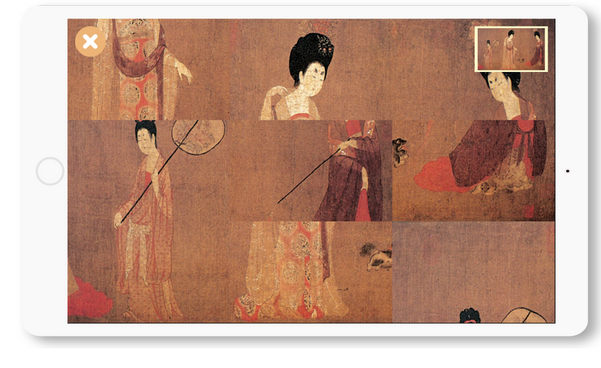
The benefits of such programs for a person with Alzheimer’s disease:
- Gentle cognitive stimulation: Our games are designed to maintain and improve cognition while avoiding potential frustration.
- Emotional support: The playful activities, cultural memories and achievements offered by our games provide invaluable emotional comfort.
- Maintaining independence: By encouraging active involvement, our games help players maintain their autonomy and self-esteem.
List of worldwide Alzheimer’s associations
- Alzheimer’s Association (U.S. ): This organization offers a wide range of resources, including support groups, hotlines, online forums and educational programs for caregivers and people with Alzheimer’s disease.
- Alzheimer Society (Canada ): The Alzheimer Society of Canada offers direct support to caregivers and families, as well as education and training programs to better understand the disease.
Alzheimer’s Disease International (ADI)
ADI is a worldwide federation of Alzheimer’s organizations dedicated to strengthening international cooperation in the fight against Alzheimer’s disease. They organize World Alzheimer’s Day and provide global resources and information.- Alzheimer Europe: This organization works to improve the quality of life of people with Alzheimer’s and their families in Europe. They offer information, resources and events to raise awareness and support.
- Fondation France Alzheimer: This French foundation offers support services, discussion groups and accompaniment programs for people with Alzheimer’s and their caregivers in France.
Alzheimer’s Disease in Mauritius (Mauritius)
This association offers support activities for caregivers and organizes information sessions to raise awareness of Alzheimer’s disease in Mauritius.- The ALOHA project (Australia ): This Australian project aims to support Aboriginal carers of people with Alzheimer’s by providing culturally appropriate resources and involving local communities.
Alzheimer Society of India (India)
This Indian organization offers support services to families affected by Alzheimer’s, as well as training programs for healthcare professionals.- Japan Alzheimer’s Disease Association (Japan): This Japanese association offers awareness-raising activities, support groups for caregivers, and promotes Alzheimer’s research in Japan.
- Alzheimer Foundation Switzerland (Switzerland ): This Swiss foundation offers a range of support services, including self-help groups, legal and financial advice, and cultural activities for people with Alzheimer’s disease.
Applications for Alzheimer’s sufferers
A games program to support Alzheimer’s sufferers
SCARLETT
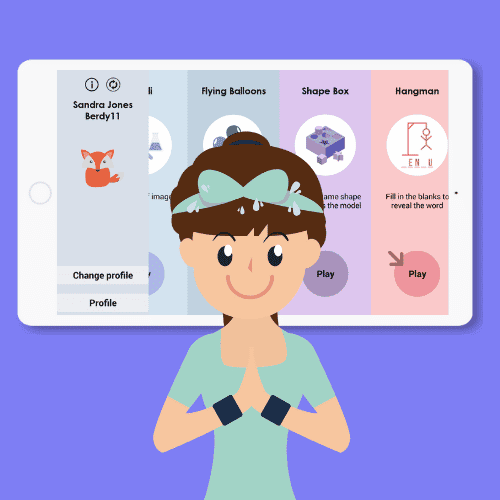
A program on reminiscence and memories for well-being
E-SOUVENIRS
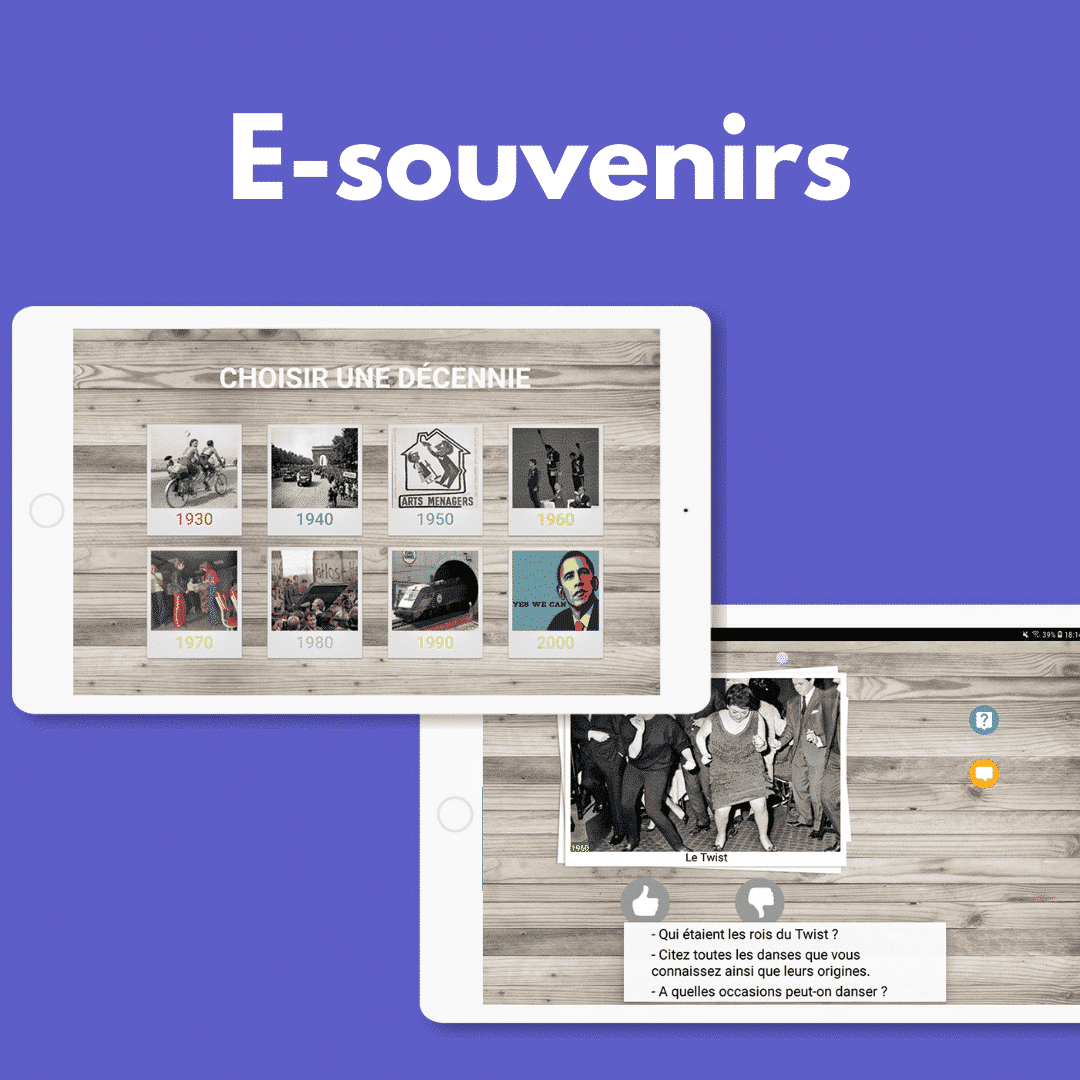
COMING SOON
Other articles that might interest you:
The Role of Cognitive Apps in Speech Therapy for Alzheimer’s Patients
Alzheimer’s disease is a progressive neurological disorder that primarily affects memory, thinking, and behavior. As...
Memory Apps for Alzheimer’s: Enhancing Recall in Speech Therapy Sessions
Alzheimer's disease is a progressive neurological disorder that primarily affects memory, thinking, and behavior. As...
Cognitive Rehabilitation Apps for Speech Therapy with Alzheimer’s Patients
In recent years, the landscape of cognitive rehabilitation has evolved significantly, largely due to the advent of...






